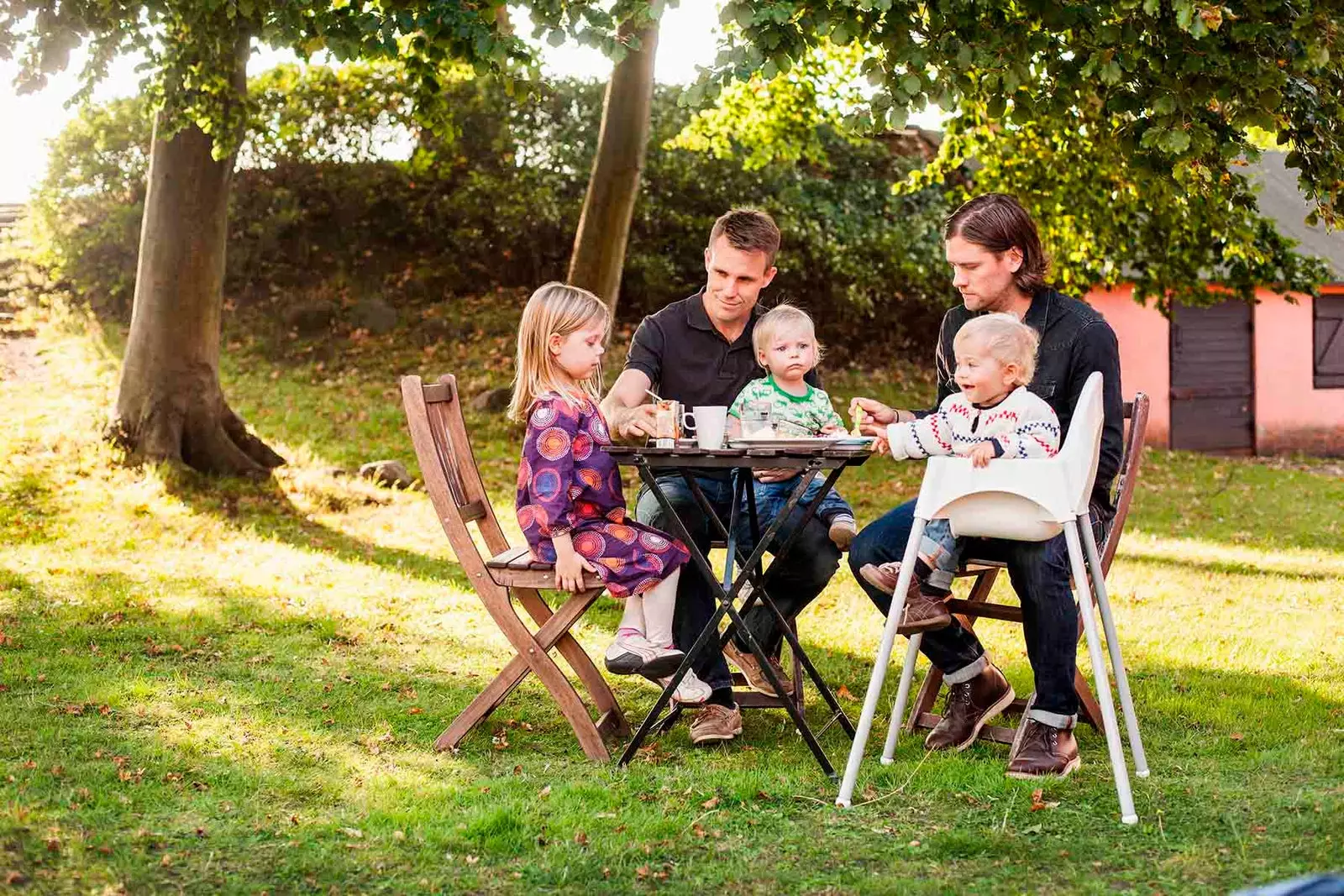#SwedenGate is the buzzword on Twitter. The reason? A Reddit thread asking, "What is the most strange What have you had to do at someone else's house because of their culture or religion?" One response especially caught my attention: "I remember going to my Swedish friend's house. list. And look at this: she told me to WAIT in his room while they ate ”, responded a user of the social network.
Someone posted the comment on Twitter, and Swedish singer Zara Larsson He retweeted it saying: “Authentic Swedish culture”. So is it true? Is it normal to leave a child without eating while the whole family eats a few meters from him?
On Twitter, there are those who affirm that he is, that he is, but that it is something that is disappearing slowly. "In Sweden, about 50 years ago, I think there was a nonverbal understanding among parents that 'Our children eat at home'. If you fed the neighbors' children, in any way, you broke the rule and You "sabotaged" their dinner plans. Dinner time was a bit sacred. Nowadays, it's not so "says Swedish user Håkan Save Hansson.
For her part, journalist Linda Johansson has written an op-ed for The Independent that throws a little more context into the custom, explaining that it is, in fact, an attempt to be polite.
“Swedish thinking is like this: the other child (or the other family) may have plans for another type of dinner, and you don't want to ruin the routine or the preparations. I don't think it has anything to do with not wanting to feed the other child or because it costs money or anything like that, it has more to do with tradition and wanting to eat with your own family ”, she writes.
WHY NOT FEEDING YOUR NEIGHBORS CHILD MAKES SENSE IN SWEDEN
User Wally Sierk, amateur Historian, by his own definition, he delved further into the controversy, explaining that in Nordic cultures, traditionally, providing food and lodging by high-status individuals to lower-status individuals was highly honorable, but also created obligations by the person receiving the hospitality. In this way, the beneficiary "was indebted" to his host.
In the middle Ages, debts used to end violently, with assaults and duels , something that the Protestant Church wanted to avoid after the 30 Years War, creating a culture that repress personal violence and civic unrest.
“Since competition for status and pay was at the root of much interpersonal violence, the Church, under the framework of the early Protestant humanists, began to promote the ideal of free member of society, owed to no one or nothing ”. The underlying idea? If culture could get rid of the interactions that caused friction, people could live more peaceful lives.
Little by little, a more egalitarian society , which minimized the creation of debts and obligations, and maximized the ability of the individual or family to be self-sufficient. “This ‘don’t feed the neighbor kids’ weirdness is really about keep the peace in the community ”, concludes Sierk.

Swedes are known for sharing fika, the daily snack
COULD SOMETHING LIKE THIS HAPPEN IN SPAIN?
In our country, where the “I fried you an egg?” It is the quintessential ditty that is dedicated to any unexpected guest (and it is better to agree and have it fried as soon as possible, because you will end up eating the egg yes or yes), It seems impossible that we could keep someone away from a communal meal, from having a #Swedengate.
The trait, in fact, is shared by all Mediterranean countries, as the general culture affirms... but also, the Map created by cartographic profile @loverofgeography, based 'loosely' on a Vice magazine article entitled: Are the Dutch really that stingy?
In it, the territories in which you are most likely to be fed when you are in someone else's house are shown in dark blue (eye, it seems that in the south of Spain It is seen that they will offer you food more often than in Cantabria or the Basque Country ), while in light blue we see marked those in which most likely yes such as the south of France, the north of Italy, the north of the United Kingdom or the Baltic countries.
In the south of the same country, it is less common, as well as in the north of France and Switzerland, while there are places where it would be strange to be offered to stay for dinner: all the Nordic countries! The countries in red they don't see a good reason to give you the food . It's not that we want to save money or anything, there's just no reason to give you free food," says a Scandinavian user in the comments.
Another, who affirms that a coffee or a pastry is always offered to those who come to your house, concedes that, in the case of strangers, there is an unwritten rule that encourages "do not disturb" . In this way, if, for example, two children play in a park and one goes to eat with his family, it may happen that they do not offer the other, something that in our country could be somewhat shocking. For great travelers like us, yes, it would never be a problem: Diversity is fun!
